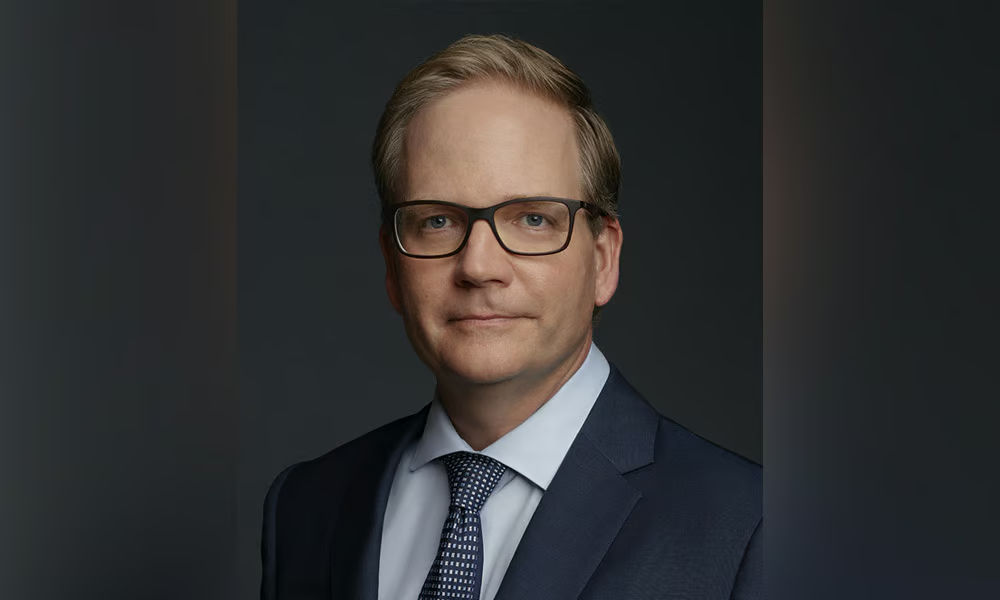Aging populations, decumulation, and advisor succession are key areas of focus for David Gunn

The wealth management industry sometimes feels like it sits at the impact point for many of Canada’s demographic issues. The wealthiest generation in human history is retiring, shifting from accumulation to decumulation with no clear picture of how long they will live. Many in that generation are passing away and leaving wealth to their spouses, children and grandchildren. Advisors are tasked with managing mass retirements and the great intergenerational wealth transfer, all while the industry goes through its own small demographic crisis. Many advisors are retiring now too, with fewer young advisors ready to take up the responsibility of serving their clients at a crucial time.
David Gunn sees these demographic issues with clear eyes. The President of Edward Jones Canada, reflecting on a year of growth in 2024, highlighted how his firm has prepared to tackle these issues for both their clients and their advisors. He outlined where the firm has found growth and the sort of client they are helping now. He explained how changes in advisory practice structure have helped lay the groundwork for the intergenerational wealth transfer and the succession issues gripping this industry. He emphasized advisor empowerment, through technology, support, and freedom as keys to any future success.
“In the next 20 years in North America, $84 trillion is going to pass hands to the next generation. We leave it to the advisor to have discretion about the account sizes they open,” Gunn says. “We serve over 190,000 clients in Canada now with over $60 billion in assets and we are focused on building capacity in our branches. A lot of our investments now are specifically designed to provide a better experience for clients and to provide capacity for branch teams.”
Among those investments, Gunn notes, are the addition of a new position called a Registered Branch Associate (RBA), capable of functioning in various support capacities for advisors, creating more of an advisory team approach. This has come alongside the expansion of new multi-advisor offices, a departure from Edward Jones’ previous model which only had single advisor branches.
Gunn notes that Edward Jones has also built out a Canada advisory platform, a unified managed account meant to provide clients with investment products they’re asking for and improving branch capacity to handle clients. The idea, Gunn notes, is to free up more time for conversations about estate plans, health concerns, and family matters rather than a granular focus on investing. He says that the firm is also rolling out Conquest in mid-2025 to improve their planning capacity for clients.
The investments Edward Jones has already made in planning has helped them grow considerably in the past year. Gunn says that the Canadian arm of the firm brought in roughly $7 billion in new assets this year. While stock market performance has been “helpful,” Gunn attributes much of that growth to the need among Canadians for financial plans.
In supporting that market for planning, Edward Jones Canada has built a high net worth planning team out of their home office. Border taxation specialists, lawyers, accountants, and other specialists comprise this team of 12-15 individuals tasked with supporting branches in Canada. They’ve built another team providing quick resources on advice and guidance, offering clients quick answers to questions around selling businesses, going to the US for the winter, or other common issues clients frequently face.
Chief among the concerns clients now raise is the issue of decumulation. While the baby boomer generation were great savers and investors, Gunn notes that the combination of longevity risk, market uncertainty, and the risk of inflation all make the transition to retirement much more challenging. Often these retiring baby boomers may also be selling a small business, creating a liquidity event with major tax implication. They could also have a plan to make major charitable donations or help subsequent generations of their family before they pass on. Gunn acknowledges how much more complicated the decumulation stage is than the accumulation stage, and notes Edward Jones’ investments in planning as a means of addressing that complexity.
While planning is key, Gunn acknowledges that the advisor behind that plan is absolutely crucial. In their hiring of new advisors Gunn says that Edward Jones has positioned themselves for the intergenerational wealth transfer. Women are the fastest growing wealth demographic in Canada, as many spouses are set to inherit assets and young women achieve more in their careers. Today women control about $2 trillion in assets, with projections of that number going to $4 trillion by 2028. Gunn says that 35 per cent of Edward Jones’ new advisor hires in Canada in 2024 were women, a move he believes helps position the firm better for the rise of female wealth.
Part of Edward Jones’ advisor hires is an investment in the future of this industry. Gunn says that his firm’s retirement program for advisors focuses largely on the client. They work with advisors to find the right successors for their clients and create a firm-supported retirement transition plan. The new team models they’ve built can also help facilitate those successions. As more firms compete for young talent to ensure their clients remain well served through a changing of the demographic guard, Gunn says he knows the kind of advisor he wants to bring on his team.
“Behaviours are very important. Putting clients interest first is a clear requirement. I would also say a growth mindset is very, very important, because there's an expectation from clients that there's significant acumen,” Gunn says. “By the end of next year 50 per cent of our advisors will have a FISRA designation, which is probably going to lead the marketplace in Canada. An advisor at Edward Jones needs to be ready to invest that time into developing themselves so they can provide a better experience For clients.”



